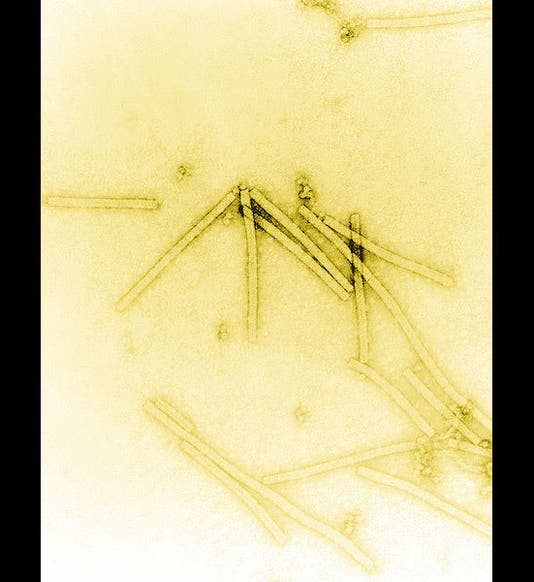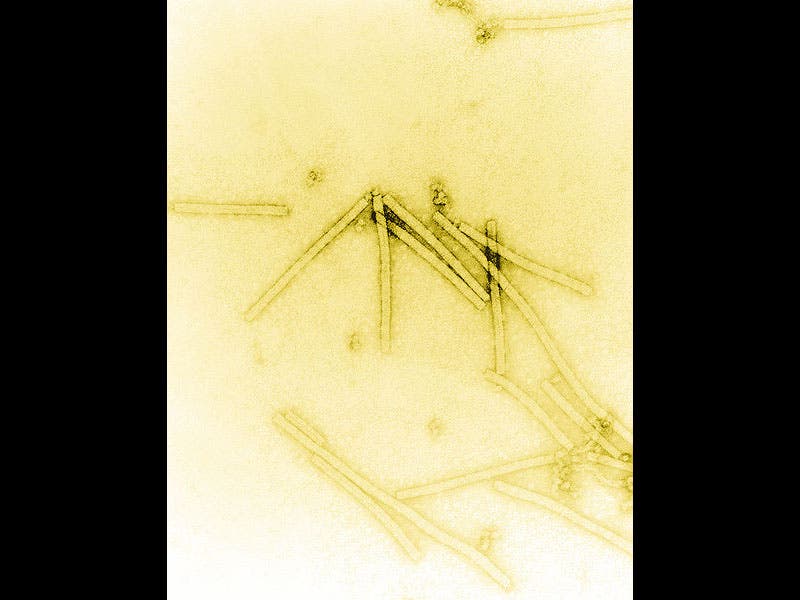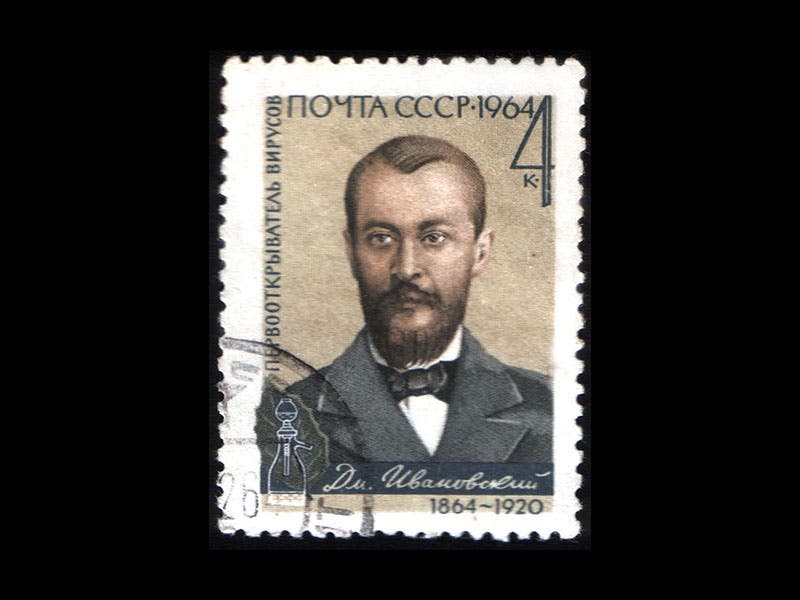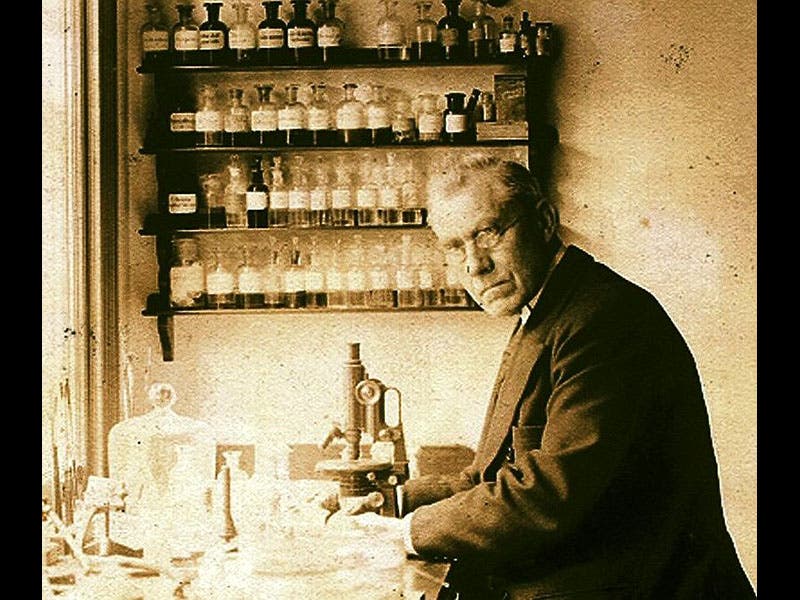Scientist of the Day - Dmitri Ivanovsky
Dmitri Ivanovsky, a Russian microbiologist, was born Nov. 9, 1864 (his birth date is sometimes given as Oct. 28, Old Style). Ivanovsky is one of two biologists usually credited with discovering viruses. In 1890, he was trying to find the cause of tobacco mosaic disease, an infection that causes tobacco leaves to discolor. From affected leaves, he prepared a solution containing the infectious agent, and he passed it through a new kind of filter, known as a Chamberland filter, made of porcelain, which has pores so small it can filter out bacteria. Ivanovsky found that after passage through the filter, the solution was still fully capable of infecting more tobacco plants, meaning the agent was much smaller than a bacterium. He published his results in 1892 and moved on to other work. Six years later, in 1898, a Dutch biologist named Martinus Beijerinck (third image), independently performing the same experiments, announced he had found a new kind of infecting organism, and he named it a virus. Neither Ivanovsky nor Beijerinck understood that the virus is particulate; Ivanovsky, for example, thought it was a toxin produced by bacteria. Not until the advent of electron microscopy in the 1950s would it be discovered that the tobacco mosaic virus is a tiny hollow rod, formed by a single spiraling strand of RNA, surrounded by a protein coat. We see above an image of the virus, enlarged 160,000 times (first image).
There are only two portrait photos of Ivanovsky; one was used for a Russian postage stamp, and we reproduce that here (second image). Both Ivanovsky and Beijerinck died before the significance of their discovery was appreciated, so they missed out on the Nobel Prize that they assuredly deserved.
Dr. William B. Ashworth, Jr., Consultant for the History of Science, Linda Hall Library and Associate Professor, Department of History, University of Missouri-Kansas City. Comments or corrections are welcome; please direct to ashworthw@umkc.edu.









